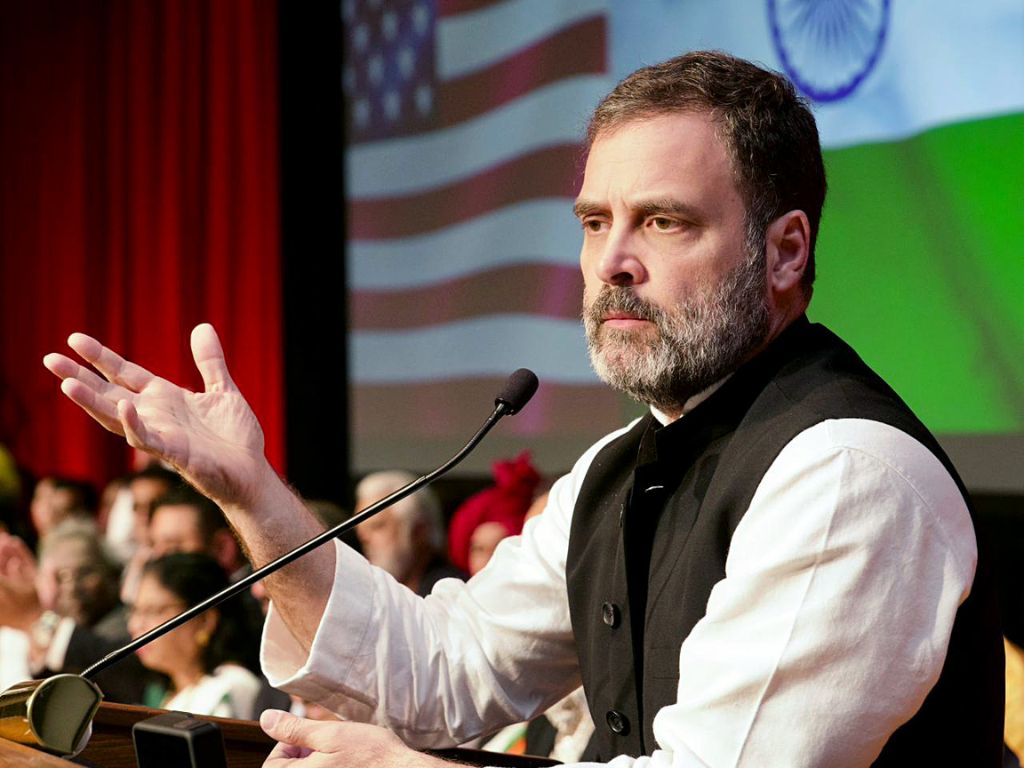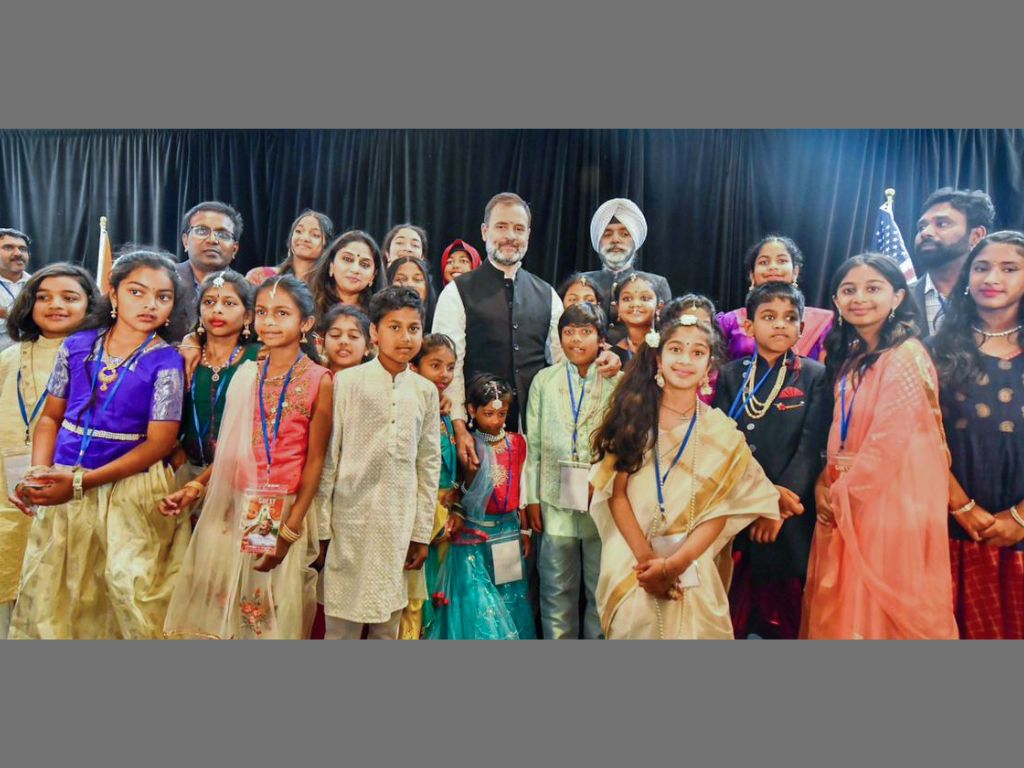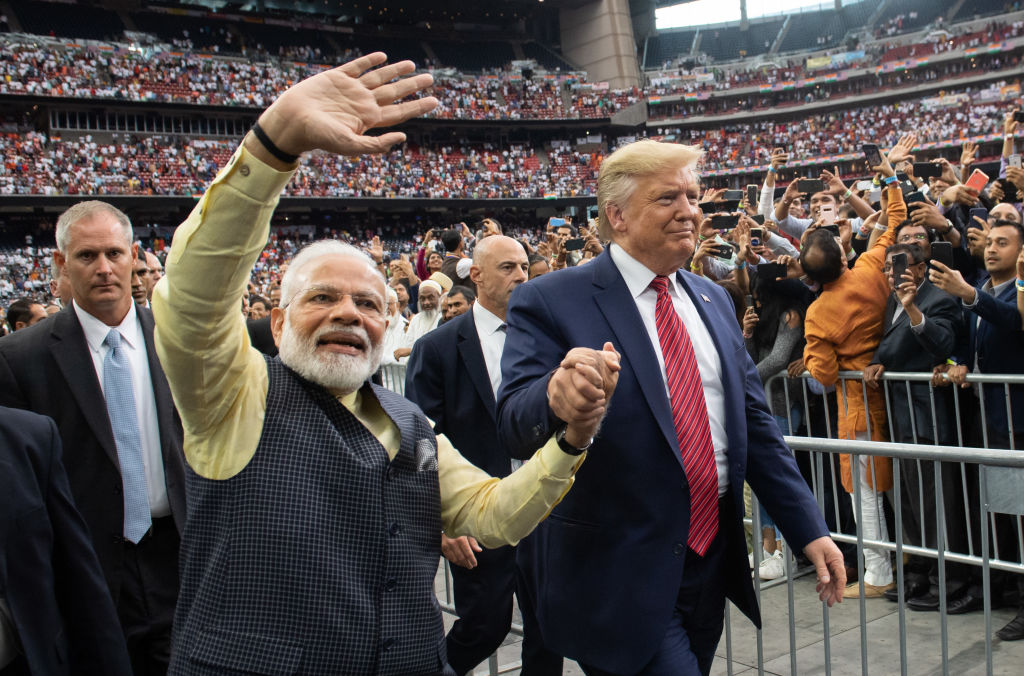- Saturday, July 27, 2024

By: Shubham Ghosh
Rahul Gandhi, one of India’s major opposition leaders, is currently on a tour of the US where he has been critical of prime minister Narendra Modi and his Hindu nationalist Bharatiya Janata Party (BJP). The words he has uttered on the American soil have been received with both curiosity and scepticism, including at home where the saffron party and its supporters have accused him of insulting the nation overseas.
While response from the Indian diaspora to Gandhi’s events in the US has not been same as that of Modi, yet the turnout at those occasions despite the fact that the Congress leader is neither a parliamentarian (he was disqualified in March following conviction in a defamation case) nor the official leader of the opposition has shown that the 52-year-old leader’s remarks are not completely overlooked.

Gandhi’s visit to the UK in March had triggered a major outrage among the BJP’s leaders and supporters back home and the budget session of the Indian parliament also witnessed ruckus over the words that the Congress leader chose to utter in the UK. The conviction in the defamation case and the disqualification as a parliament also happened close on the heels of that tour.
Yet, the former president of the Congress continued with the same verbal stance in the US, where Modi will set his foot later this month. Gandhi was, in fact, bolstered by the fact that his party humbled the BJP in the election in a big southern state — Karnataka — and the warm response his months-long ‘Bharat Jodo Yatra’ (Unite India March) concluded earlier this year, received.
Does the Indian politician have a special interest in wooing the diaspora in the US?

According to a report by the BBC, Indian-Americans have the biggest median income among all immigrant communities in the US and contribute a significant amount of money to both American and Indian political outfits. Since Indian-Americans play a key role in US politics as leaders, candidates and voters, they are considered more than just being a “soft power”.
As per to a 2019 study, donors from the community made the biggest individual contributions to Democratic candidates, compared to other Asian Americans.
Milan Vaishnav of the Carnegie Endowment for International Peace, a Washington-based think tank, told the BBC that a positive news coverage reported back home has the potential to “boost electoral prospects” in India.
Sanjoy Chankraborty of Temple University, Pennsylvania, who is also the author of the book ‘The Other One Percent: Indians in America’, however, feels Gandhi has a big task to accomplish. He told the publication that while the opposition leader may try to gain international relevance, he has been “turned into a bit of a joke in many circles”.
“So, there is always an attempt at gravitas, to be taken seriously,” he was quoted as saying by the BBC.
Vaishnav also feels that Gandhi’s latest visit to the US is not well timed since it is taking place just days ahead of Modi attending a state dinner in his honour at the White House.
According to him, it is quite tough to compete with those optics and with Modi receiving such a high honour as a foreign politician in the US, direct comparisons will be inevitable. Vaishnav also said that the Indian prime minister’s rockstar-like appeal among the Indian diaspora is “unique”.
His recent visit to Sydney, Australia, is an example.
As India grows economically and its alliance with the US becomes stronger, the Indian-Americans’ significance also grows in terms of political influence and their role in New Delhi’s foreign policy, the BBC added.
The country’s ruling BJP had engaged with the diaspora long before Modi came to the scene. In the 2000s, its first prime minister Atal Bihari Vajpayee was one of the first to begin the exercise and it only grew over the years.
The tradition of celebrating Pravasi Bharatiya Divas (Non Resident Indians Day), to mark the contribution of the overseas Indians to India’s development, had started in 2003 when Vajpayee was the prime minister.
In 2014, when Modi visited New York’s Madison Square Garden after becoming the prime minister, nearly 20,000 Indian-Americans cheered for him.
“Is there another world leader who would have the capacity or audacity to sell out Madison Square Garden?” Vaishanv asked, while speaking to the BBC. “I can’t think of anyone.”
In 2019, the year Modi became the prime minister for the second time, 50,000 Indian-Americans arrived at an event in Houston to see him with then US president Donald Trump.
It was the biggest reception a foreign leader had received in the US, apart from the Pope and Trump termed it “exceptional”.
Chakravorty said while many Indian prime ministers have visited the US and met high-level officials and negotiated trade talks, they hadn’t done big public events and Modi’s style has been different in that sense.
There are also other factors why India’s politicians reach out to the diaspora in the US, which cannot cast ballots in elections in India.
The community has deep familial, cultural and economic ties with their roots and have personal investments at stake, in terms of land, house or stocks.
With costly college education, Indian-Americans admit that they are beneficiaries of public institutions of higher education back home. The Indian economy also benefits in turn from its industrious diaspora. According to an official of a central bank, the South Asian nation received $108bn (£86bn) in remittances from overseas Indians last year, the BBC report added.
Indian-Americans are also criticised for showing involvement in domestic politics while leading comfortable lives in America but they feel their engagement with Indian politicians in the US sends a message to Indians at home that their hearts are with them, Anu Maitra, a trustee at the University of California which hosted Gandhi, told the BBC.
“It’s not as if living abroad means you are out,” she told the publication. “You expect us to bail you out of balance of payments problems but not speak up?”
Talat Hasan, an entrepreneur from Silicon Valley, said many first generation Indian-Americans harbour a strong connection with the country since they were raised in the post-independent India with a strong sense of patriotism.
The diaspora’s willingness to help India also goes “beyond sentimentality,” Anjali Arondekar of University of California told the BBC.
“The big reason is not because we are sending large remittances. [It’s that] Indian youth in the US are looking for a connection with India.”